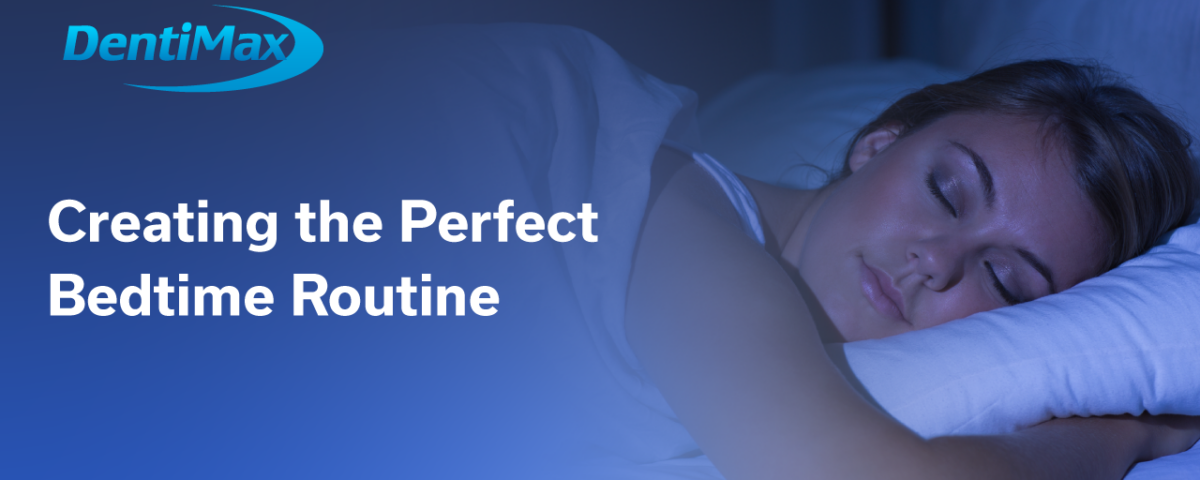Getting a full night of sleep is essential to feeling your best, as it gives your body and mind time to rest and recover from the day. Unfortunately, many people struggle to get the recommended seven to nine hours of sleep per night. One way to help improve the quality of your sleep is to establish a bedtime routine.
This routine may range from a variety of activities, however, there are a few that are proven to improve your sleeping patterns. By consistently following the same steps every night before bed, your body will begin to associate those activities with sleep and help you drift off more easily.
How Can a Bedtime Routine Improve Sleep Quality?
Creating a bedtime routine can help improve sleep quality in several ways. First and foremost, it helps signal to your body that it’s time to start preparing for sleep. This cues your body to start releasing hormones like melatonin, which makes you feel sleepy. Additionally, going to bed and waking up at the same time each day helps to regulate the body’s natural sleep cycle and overall circadian rhythm.
Moreover, a bedtime routine can help reduce stress and anxiety, which can also interfere with sleep. By taking some time to relax before bed, you can clear your mind and feel more relaxed when you turn out the lights. However, it’s not as easy as picking a few activities and calling it a night. 30% of American adults have insomnia, and 10% have it as a chronic condition.
Not only can this lack of sleep make it difficult to function, but it can also lead to health problems such as:
- Heart disease — If you don’t get enough sleep, it can lead to high blood pressure and heart disease. Poor sleep can also develop into harmful behaviors that are bad for your heart, such as more stress, less motivation to be physically active, and poor food choices.
- Diabetes — Those who get less than seven hours of sleep will have a harder time managing their diabetes. Too little sleep can cause an increase in insulin resistance, raise blood pressure, and weaken your immune system.
While a routine can’t solve all of these problems, it’s a good place to start. Giving your body consistency can make a big difference in the quality of your sleep — and, in turn, your overall health.
Tips for Creating a Bedtime Routine
Now that you know how important a bedtime routine is, you may be wondering how to go about creating one. As you begin putting your night-time ritual together, keep the following tips in mind:
- Start small — You don’t have to do a complete 180 to see results. If you currently don’t have a bedtime routine, start with just one or two activities that you can easily integrate into your evening. Once those become habits, you can add more activities as needed.
- Make it calming — The whole point of a bedtime routine is to help you relax, so make sure the activities you choose are calming. Reading, stretching, and taking a bath are all good options.
Don’t make it too long — A bedtime routine should take 30 minutes or less. If it feels like a chore, you’re doing too much. Remember, the goal is to wind down, not wear yourself out. - Tailor it to your needs — Not everyone is the same, so not every bedtime routine will work for everyone. Pay attention to what makes you feel relaxed and adjust your routine accordingly.
- Stick to it — The key to any good bedtime routine is consistency. Going to bed and waking up at the same time each day will help regulate your body’s natural sleep cycle. So, even on weekends, do your best to stick to your routine.
Getting into a new routine can take some time, but it’s worth it. Along with these tips, consider the following advice to help you get started.
Avoid Caffeine and Alcohol Before Bed
Both caffeine and alcohol can disrupt sleep and lead to insomnia. Caffeine is a stimulant that makes it more difficult to fall asleep. Therefore, even moderate caffeine intake up to 6 hours before bedtime may have significant sleep-disrupting effects. However, caffeine is not only found in coffee but also in tea, energy drinks, soda, and chocolate.
On the other hand, alcohol may help you fall asleep at first, but it will make it harder to stay asleep. If you consume alcohol before going to bed, you may not sleep deeply or long throughout the night. As alcohol metabolizes, the sedative effect dissipates. This can also lead to frequent trips to the bathroom and disruptive snoring.
To avoid these substances before bedtime, try:
- Choosing decaffeinated or caffeine-free beverages;
- Limiting yourself on how much you consume before bed.
Both caffeine and alcohol can also stain your teeth. So not only are they bad for your sleep, but they’re also bad for your oral health. Therefore, it’s best to avoid them before bedtime and brush well before sleep.
Exercise Earlier in the Day
Exercise is an excellent way to improve sleep quality. Research shows that moderate aerobic exercise increases slow-wave sleep. This type of sleep refers to deep sleep in which your brain and body have a chance to recharge. Additionally, exercising is essential in stabilizing your mood, regulating body temperature and hormones, and mind decompression — a vital process that is key in naturally transitioning to sleep.
Exercising too close to bedtime can disrupt sleep by increasing body temperature and adrenaline. However, if you find that you can’t avoid working out at night, it’s okay. Keep in mind that experts recommend avoiding vigorous activity for at least one hour before bedtime.
Establish a Relaxing Pre-bedtime Ritual
Pre-bedtime rituals are key in helping you relax and transition to sleep. A bedtime routine can be anything that helps you wind down for the night. It should be something that you enjoy and makes you feel peaceful.
Common pre-bedtime rituals include:
- Reading — A book can be a great way to relax and transition to sleep. If you have trouble sleeping, choose a book you enjoy that won’t keep you up at night.
- Meditating — Meditation can help clear your mind and ease anxiety. If you’re new to meditation, many resources are available to help you get started.
- Taking a bath — Adding soothing aromatherapy or Epsom salt to your bath can help you relax even more.
- Listening to calming music — Soft, slow music can help you relax and prepare for sleep.
- Stretching or relaxation exercises — Doing relaxation exercises can help ease muscle tension and promote sleep.
Not everyone enjoys the same activities, so find what works best for you and stick to it.
Make Your Bedroom Conducive to Sleep
One of the most important things you can do to create a sleep-friendly environment is to make your bedroom conducive to sleep. This means keeping the room dark, quiet, and cool.
Darkness helps promote melatonin production, which is crucial for regulating sleep. Conversely, even a small amount of light can disrupt melatonin production and make sleeping more difficult.
To keep your bedroom dark, try:
- Using blackout curtains or shades;
- Wearing an eye mask;
- Keeping electronics out of the bedroom.
Similarly, environmental noise can decrease slow-wave and REM sleep. So if outside noise is keeping you up at night, try:
- Using a sound machine or white noise machine;
- Listening to calming music;
- Wearing earplugs.
Lastly, keeping your room cool helps promote sleep since it lowers your body’s temperature before you fall asleep. During sleep, your core temperature is reduced as a way to store energy. Therefore, sleeping in a cooler environment lowers your body temperature faster, allowing you to fall asleep. To keep your bedroom cool, try:
- Keeping the room temperature between 60 and 67 degrees Fahrenheit;
- Opening a window for fresh air;
- Using a fan.
Creating a sleep-friendly environment is key to falling asleep and staying asleep.
Oral Hygiene
Good oral hygiene is vital for overall health, but it’s also crucial for a good night’s sleep. Oral health conditions like gum disease, tooth decay, and mouth sores can cause sleep disruption.
To practice good oral hygiene:
- Brush your teeth twice a day with a toothpaste that contains fluoride;
- Floss daily;
- Use an antiseptic mouthwash to help reduce plaque and bacteria;
- See your dentist regularly for cleanings and checkups.
If you don’t keep up with your oral hygiene, it can lead to more complicated health problems. For instance, tooth decay from sleep apnea can cause sleep disruption and severe sores or gingivitis.
Because of this, it’s important to find a dentist you trust and feel comfortable with. They can help you maintain a good oral hygiene routine and catch any potential problems early on. Additionally, they can help you create a treatment plan that’s easily managed through transparent and accessible dental software and records.
With a healthy smile, you’re more likely to show off your pearly whites — and laugh more. In turn, you’ll reap all the additional health benefits that smiling brings.
Put Away Electronics Before Bedtime
It’s best to disconnect from electronics at least 30 minutes before bedtime. This is because the blue light emitted from screens suppresses melatonin production, making it more difficult to fall asleep. Additionally, using electronics before has been linked to insomnia, as you’re constantly caught up in the never-ending scroll, making it difficult to fall asleep.
To avoid using electronics before bed, try:
- Charging them in another room, so you’re not tempted to use them;
- Setting a cutoff time for use;
- Reading a physical book or magazine instead of using an e-reader or tablet.
If you must use electronics before bed, adjust the brightness of your screen or turn on night mode to help reduce the amount of blue light exposure.
Creating a bedtime routine is key to getting a good night’s sleep. By following the tips above, you’ll be on your way to getting the shut-eye you need.






